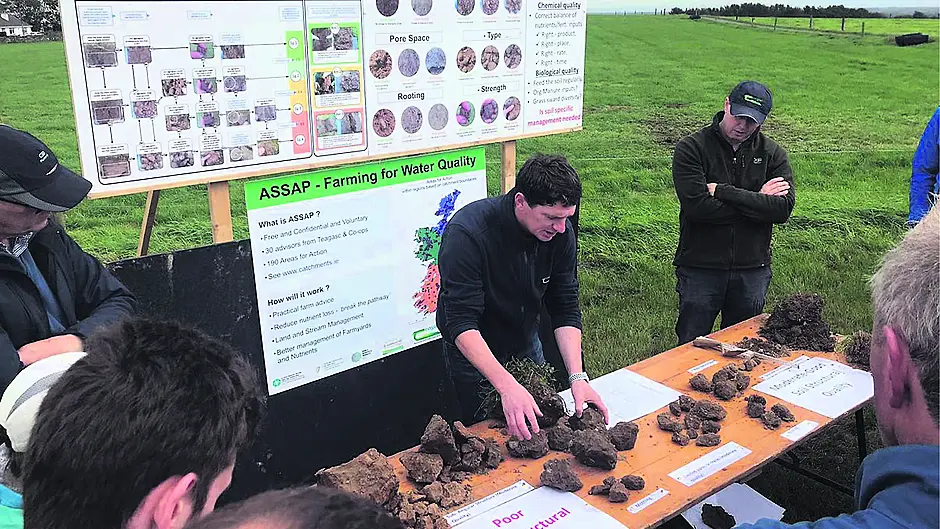By Stephen O’Sullivan
FARMING has come a long way in the last 50 years, with huge improvements in how we grow our crops and rear our animals. These days farmers are constantly finding ways to become more efficient and have become very aware of environmental challenges.
It was great to see so many farmers from the West Cork region who travelled up to Teagasc Beef 2022 in Meath and were hungry for information on new technologies.
The stand ‘Assessing Soil Structure and Soil Quality’ was very interesting and consisted of a hole dug in the ground and a table with soil cubes to discuss soil health and show farmers how to assess the health of the soil.
Farmers are always drawn to soil; I think it’s in our DNA. There were a lot of specific questions on soil type and farmers looking to solve specific problems in relation to production or ponding on land.
But what really interested people was hearing about the life in soil and all the hard work that goes on behind the scenes underneath our feet 24 hours a day, 365 days a year carried out by the soil microbiome.
A microbiome is all of the microorganisms within or associated with a particular environment. You hear of the human microbiome in relation to products you can buy to improve digestion and health. The soil microbiome is much more complex and it does vital work for farmers in helping to produce food.
There are more organisms in one tablespoon of healthy soil than there are people on earth.
The soil microbiome consists of a diverse community of micro-organisms such as bacteria, archaea and fungi. Each group consist of millions of different species that carry out different functions in our soils such as releasing nutrients, cleaning water, storing carbon and a home for biodiversity.
Lots of farmers know earth worms are a great sign in land but we also need to be aware of the huge amount of microbes doing other vital jobs for us, such as rhizobia bacteria for example, who work with white clover to produce free nitrogen for us to grow grass. In order for us to ensure our soil is resilient enough to deal with the pressures our management puts on it we must look after it to the best of our ability.
• Stephen O’Sullivan is Business & Technology Beef and Sheep advisor based in the Teagasc office in Skibbereen.
TOP TIPS FOR SAFEGUARDING YOUR SOIL BIOLOGY
• Avoid physical damage (compaction) to soil as much as possible
• Return organic matter to soils (dung and slurry), in particular to arable land and silage ground
• Optimise fertility and pH
• Diversify your crops and crop rotation (mixed species swards/cover crops/green cover)
• Reduction in chemical fertilsers and agri chemicals, only use what the crop needs
• Check your soil health, take out the spade and have a look for yourself.








